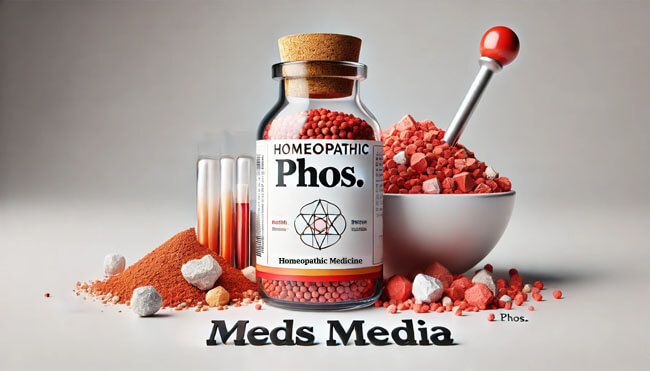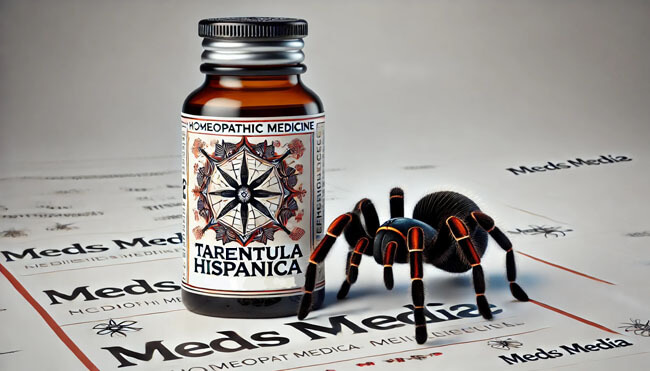
Introduction to Stramonium Personality
Stramonium, derived from the Datura stramonium plant, is a potent homeopathic remedy known for its profound impact on the brain and nervous system. In homeopathy, it is often associated with individuals experiencing extreme mental disturbances, especially in situations involving fear, delusion, and psychosis. The Stramonium personality, as portrayed in the Materia Medica, reflects a state of heightened fear, delirium, and hallucination, often bordering on madness. This remedy is most commonly prescribed in cases where fear is paralyzing or where there is a loss of mental coherence.
Mental and Emotional Characteristics of Stramonium Personality
The most distinguishing feature of the Stramonium personality is its strong influence on the mind. Individuals in need of this remedy exhibit marked mental instability, often alternating between extreme emotions. Below are the key mental and emotional characteristics:
- Fear and Delirium: The Stramonium individual often experiences intense fear, especially of being alone or in the dark. They may be terrified of water, which can trigger spasms or violent reactions. Fear of darkness and solitude is extreme, and the patient craves light and company.
- Hallucinations and Delusions: These individuals commonly experience vivid hallucinations and delusions. They may see ghosts, hear imaginary voices, or speak to spirits. This can create a disconnection from reality, manifesting in bizarre beliefs such as thinking they are double or missing parts of their body.
- Manic Behavior: Patients under the influence of Stramonium exhibit a manic disposition. There may be episodes of incessant talking, singing, laughing, praying, and even swearing. These symptoms often accompany a religious mania, where the individual may become excessively devout or obsessed with religious themes.
- Mood Swings: Extreme mood fluctuations are common in this personality. The individual may shift rapidly between joy, sorrow, anger, and violent outbursts. They may exhibit sudden, erratic behavior, such as lewdness or aggression, often without clear triggers.
- Violence and Aggression: There is often an underlying sense of violence in Stramonium personalities, manifesting as physical outbursts, self-harm, or attacks on others. This aggressiveness is usually a result of their deep-seated fear and confusion.
Physical Characteristics of Stramonium Personality
Physically, the Stramonium personality is defined by several distinct characteristics, which are often a direct manifestation of its mental state.
- Facial Expressions: The face of a Stramonium patient often appears distorted, with a look of terror or fear. Their eyes may seem wide open and staring, with dilated pupils. They might frequently raise their head from the pillow in an agitated manner.
- Convulsions and Spasms: Stramonium personalities often suffer from rhythmic, graceful convulsions, especially in the upper extremities. These spasms may be partial and can affect isolated muscle groups, creating jerky, uncoordinated movements. This is common in cases of chorea or Parkinsonism.
- Auditory Hallucinations: Another physical manifestation is auditory hallucinations, where the patient hears voices or sounds that aren’t present. They often report a rush of blood to the head and exhibit a staggering gait with a tendency to fall forward or to the left.
- Suppressed Secretions: Suppressed secretions and excretions, particularly in the urinary system, are also common. The bladder may feel empty, with an inability to pass urine. The skin can exhibit a bright red flush, often indicating suppressed eruptions, as seen in scarlet fever.
Behavioral Patterns of Stramonium Personality
The behavioral patterns of individuals needing Stramonium often involve an interplay between fear-driven reactions and manic tendencies.
- Loquaciousness and Excessive Talking: One of the most noted behaviors is excessive talking. Patients may speak non-stop, often moving from topic to topic without coherence. This can include rhyming, singing, or incessant prayers.
- Avoidance of Solitude and Darkness: Behavioral responses include an intense aversion to solitude and darkness. Patients will often beg for light and company, exhibiting panic when left alone or in a dark room.
- Uncontrollable Laughter or Crying: The patient may oscillate between uncontrollable laughter and crying, reflecting their unstable emotional state.
- Inappropriate and Lewd Behavior: Particularly in male patients, there may be excessive sexual arousal, often accompanied by inappropriate behavior or speech. These actions may be public, with little regard for societal norms.
Associated Diseases in Stramonium Personality
The Stramonium personality is often linked with conditions that reflect the profound mental and physical disturbances mentioned earlier. Key associated diseases include:
- Delirium Tremens: This condition, marked by severe confusion, hallucinations, and tremors, mirrors the Stramonium state of mind. It is common in individuals undergoing alcohol withdrawal.
- Psychosis and Schizophrenia: Due to the delusional thinking and hallucinations, Stramonium is often indicated in cases of psychosis or schizophrenia, especially when religious delusions are involved.
- Parkinsonism and Chorea: Neurological conditions such as Parkinson’s disease and chorea, characterized by involuntary movements, align with the physical symptoms of Stramonium personalities.
- Puerperal Mania: This is a form of post-labor mania seen in women, often accompanied by excessive sweating and loquacity.
Miasmatic Personality of Stramonium
In homeopathy, the miasmatic classification refers to the underlying predisposition to disease. The Stramonium personality is often aligned with the Syphilitic Miasm, a miasm associated with destructive, chaotic, and violent tendencies. The violent and erratic nature of the Stramonium patient, coupled with their fear of annihilation and disintegration, echoes the characteristics of this miasm. The intense fear of death, darkness, and isolation, along with the disordered mental state, are key indicators of a syphilitic miasmatic background.
Conclusion
The Stramonium personality in homeopathy is one of intense mental disturbance, marked by profound fear, hallucinations, and delusions. Individuals in need of this remedy often exhibit extreme behaviors ranging from manic episodes to violent outbursts. Physically, they are prone to convulsions, auditory hallucinations, and a wide range of symptoms related to suppressed secretions. This comprehensive profile highlights the complexity of the Stramonium remedy, offering insight into its mental, emotional, and physical characteristics.
Why Meds Media guides are different
We focus on clear, practical explanations of homeopathic and natural health topics so you can understand remedies, symptoms, and lifestyle changes in simple language.
Meds Media is an educational resource only. Always consult a qualified doctor or homeopathic practitioner before starting, stopping, or changing any treatment.
Similar Posts You may also like
Zincum Picricum Homeopathic Medicine & Personality | Uses, Benefits & Indications
Zincum Phosphoricum Homeopathic Medicine & Personality | Uses, Benefits & Indications
Zincum Iodatum Homeopathic Medicine & Personality | Uses, Benefits & Indications
Zincum Bromatum Homeopathic Medicine & Personality | Uses, Benefits & Indications
Zea Homeopathic Medicine & Personality | Uses, Benefits & Indications
Zincum Aceticum Homeopathic Medicine & Personality | Uses, Benefits & Indications
Zincum Cyanatum Homeopathic Medicine & Personality | Uses, Benefits & Indications
Zincum Muriaticum Homeopathic Medicine & Personality | Uses, Benefits & Indications
Zincum Oxydatum Homeopathic Medicine & Personality | Uses, Benefits & Indications
Zincum Sulphuricum Homeopathic Medicine & Personality | Uses, Benefits & Indications

Phosphorus Homeopathic Medicine & Personality | Uses, Benefits & Indications
Causticum Homeopathic Medicine & Personality | Uses, Benefits & Indications

Veratrum Viride Homeopathic Medicine & Personality | Uses, Benefits & Indications

Spongia Tosta Homeopathic Medicine & Personality | Uses, Benefits & Indications

Zingiber Officinale Homeopathic Medicine & Personality | Uses, Benefits & Indications

Sulphur Homeopathic Medicine & Personality | Uses, Benefits & Indications

Tarentula Hispanica Homeopathic Medicine & Personality | Uses, Benefits & Indications


